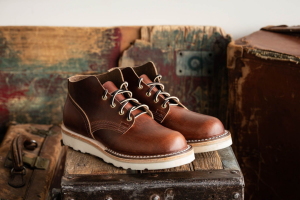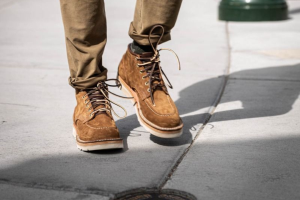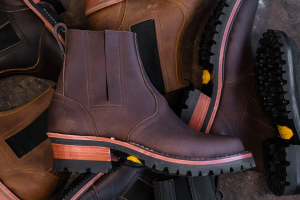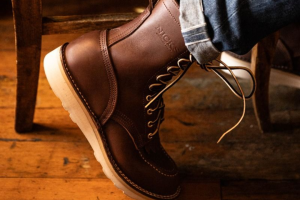Alloy Toe vs. Steel Toe Boots: Which Is The Best?
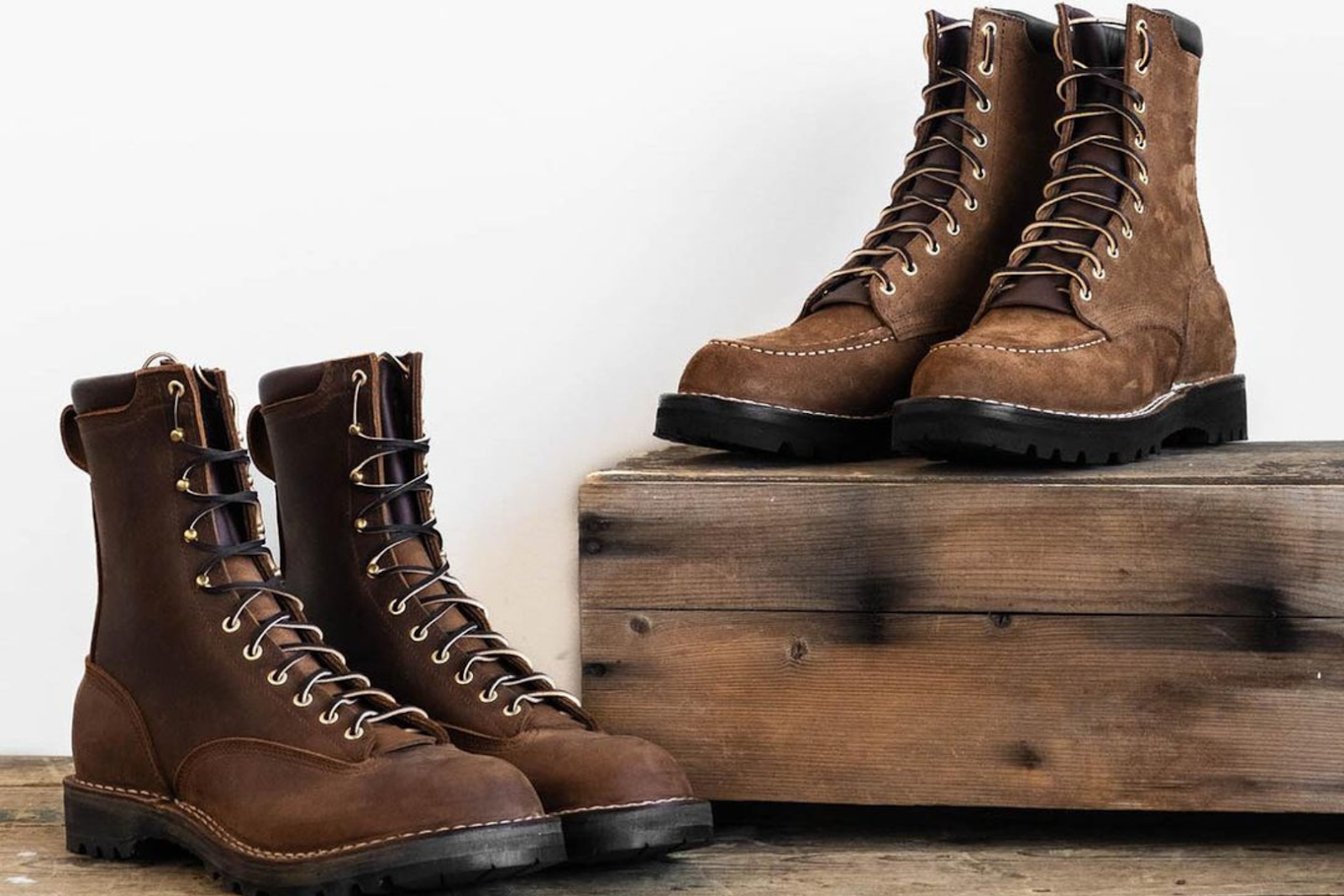
Key Takeaways:
- Lightweight Advantage: Alloy toe boots provide a lightweight alternative to traditional steel toe boots, reducing foot fatigue without compromising safety.
- Durability and Protection: Steel toe boots offer unmatched durability and protection in hazardous work environments, making them ideal for high-risk jobs.
- Safety Standards Compliance: Alloy and steel toe boots meeting ASTM F2413 safety standards are crucial for providing adequate protection in various work settings. For a selection that ensures both safety and durability, exploring options in work boots designed to meet these standards can offer the assurance and support needed in demanding environments.
Choosing the right protective footwear is crucial, not just for safety at work but also for comfort during leisure activities. Among the plethora of options, alloy toe and steel toe boots stand out as popular choices. However, the debate between alloy toe vs. steel toe boots is ongoing, with each offering distinct advantages and considerations. This article aims to compare these two types of boots in terms of weight, safety features, and durability, providing valuable insights to help readers make an informed decision on the most suitable protective footwear for their needs.
For those seeking the ultimate balance of protection, durability, and comfort, our Tactical Boot emerges as a premier choice. Engineered with precision to meet the demands of both rigorous work environments and active leisure activities, it transcends the typical alloy vs. steel toe debate.
What Are Alloy Toe Boots?
Alloy toe boots are designed with a protective cap made from lightweight materials like aluminum or titanium. These boots aim to offer the same level of protection as traditional steel toe boots but with a significant reduction in weight. The use of alloy materials means these boots are lighter, making them more comfortable for long wear, especially for those on their feet all day. Despite their lightweight nature, alloy toe boots meet the same safety standards for impact and compression resistance as steel toe boots, making them a viable option for various work environments.
What Are Steel Toe Boots?
Steel toe boots are the traditional choice for protective footwear, featuring a durable steel cap over the toe area to protect the foot from falling objects and compression injuries. Known for their robustness, these boots are a staple in industries where physical hazards are a concern. The steel toe cap is designed to meet or exceed safety standards for impact and compression, ensuring a high level of protection for the wearer. While they are heavier than alloy toe boots, their strength and protective qualities make them a preferred option for many workers in challenging environments.
Comparing Alloy Toe And Steel Toe Boots
Weight
Alloy toe boots, made from lightweight materials like aluminum or titanium, offer a significant advantage in reducing foot fatigue without compromising on safety. They are an excellent choice for professionals who spend a lot of time on their feet and require mobility along with protection. Steel toe boots, on the other hand, are heavier due to the density of steel. This can lead to increased foot fatigue over long periods, making them more suitable for jobs that require less movement but higher protection levels.
Safety Features
Both alloy and steel toe boots meet essential safety standards such as ASTM F2413 in the United States, ensuring they protect against impacts and compression. The main difference lies in their performance under extreme conditions. Steel toes can handle higher levels of impact and pressure, making them ideal for environments with significant hazards. Alloy toes, while still offering substantial protection, may be better suited for areas where the risk is less intense but where lightweight flexibility is beneficial.
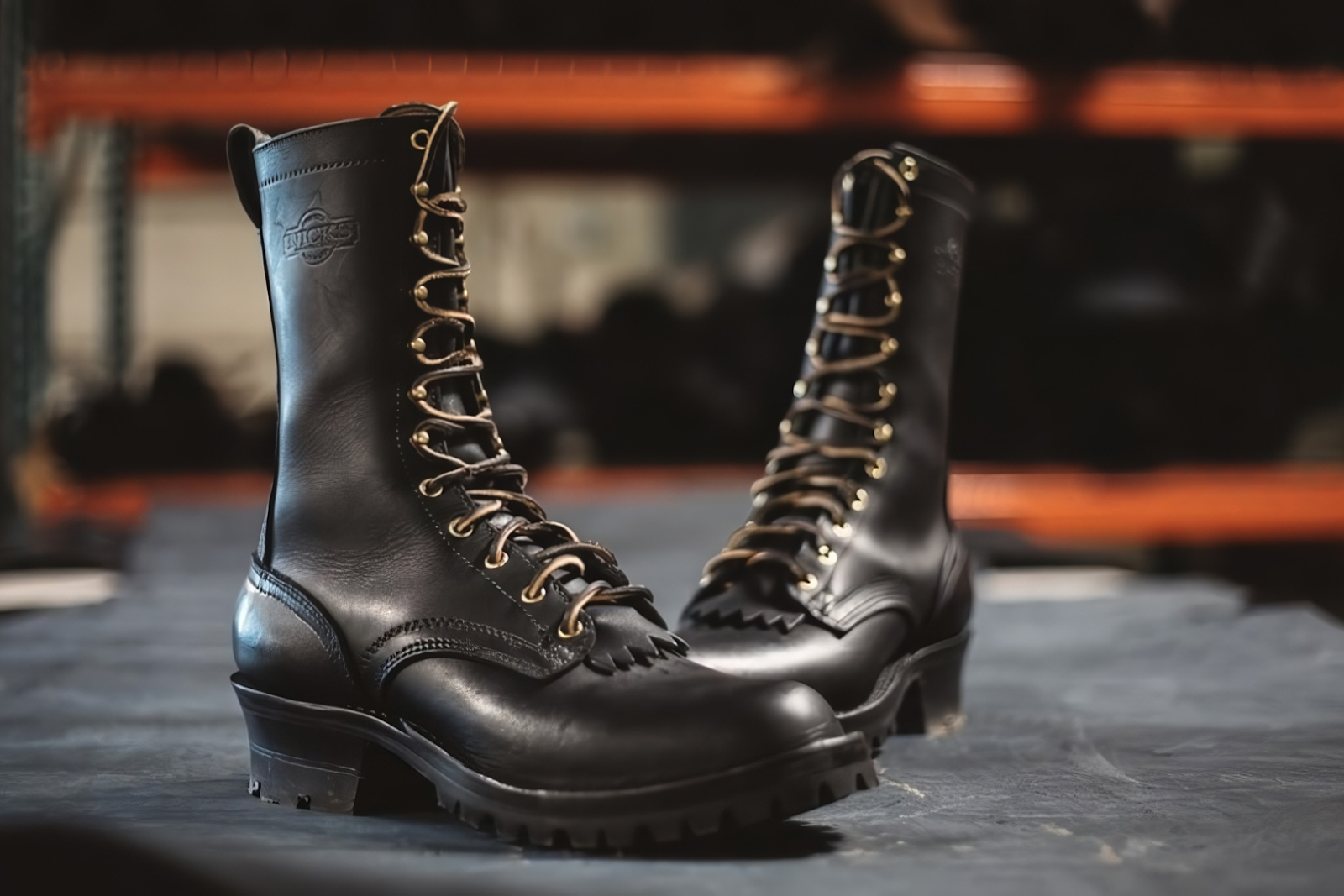

Durability
Durability is where steel toe boots often have an edge, due to steel's inherent strength. They can withstand harsh conditions, including extreme impacts, without deforming. Alloy toe boots are durable but might not handle extreme abuse as steel toes can. However, for many work environments, the durability of alloy toe boots is more than sufficient, and their lighter weight can be a significant advantage.
Pros And Cons Of Alloy Toe Boots
Pros
- Superior Protection: Steel toe boots are renowned for their ability to protect feet from heavy falling objects, sharp items that might pierce the sole, and compression forces. This makes them indispensable in construction, manufacturing, and other industrial settings.
- Durability: Made to withstand tough conditions, steel toe boots are crafted from high-quality materials that ensure longevity. They can endure wear and tear, making them a cost-effective option in the long run.
- Compliance with Safety Standards: These boots often meet specific safety certification standards required by various industries, ensuring that they provide the level of protection needed to keep workers safe on the job.
- Versatility: Beyond their protective features, steel toe boots come in various styles, including waterproof, insulated, and slip-resistant options, catering to a wide range of work environments and personal preferences.
Cons
- Weight: Steel toe boots are inherently heavier than their non-steel counterparts due to the metal toe cap. This additional weight can contribute to leg fatigue, particularly for workers who are on their feet all day or cover long distances.
- Thermal Conductivity: Metal is a good conductor of heat and cold, which means steel toe boots may not offer the best insulation in extreme temperatures. In hot environments, they can get uncomfortably warm, while in cold conditions, they might not keep feet warm enough.
- Comfort: While modern designs have improved significantly, the rigid nature of the steel toe can make these boots less comfortable for some, especially during the break-in period. It’s important to choose boots with adequate padding and ergonomic features to mitigate this.
- Cost: Generally, steel toe boots are more expensive upfront due to the materials and construction required to meet safety standards. This might be a consideration for individuals or companies purchasing boots in large quantities.
In conclusion, while steel toe boots offer unparalleled protection and durability, their weight, comfort in extreme temperatures, and initial cost are factors that might not make them the ideal choice for everyone. Weighing these pros and cons against the specific needs of your workplace and personal preferences is crucial to finding the right protective footwear.
How To Choose The Right Boot For You
Consider Your Work Environment
Considering the hazards and conditions of your work environment is key. Alloy toe boots offer mobility for lighter, less hazardous settings, while steel toe boots provide protection in more risky environments. For those in military or tactical fields, where conditions can vary widely and often involve higher risks, selecting boots designed for such scenarios is critical. Military boots, specifically tailored for extreme conditions and meeting rigorous safety standards, ensure both protection and performance.
Assess Footwear Weight And Comfort
The weight of the boot can significantly affect comfort and the likelihood of foot fatigue. Lighter alloy toe boots are preferable for roles requiring a lot of movement or standing, whereas the heavier steel toe boots might be more appropriate for stationary or less dynamic roles.
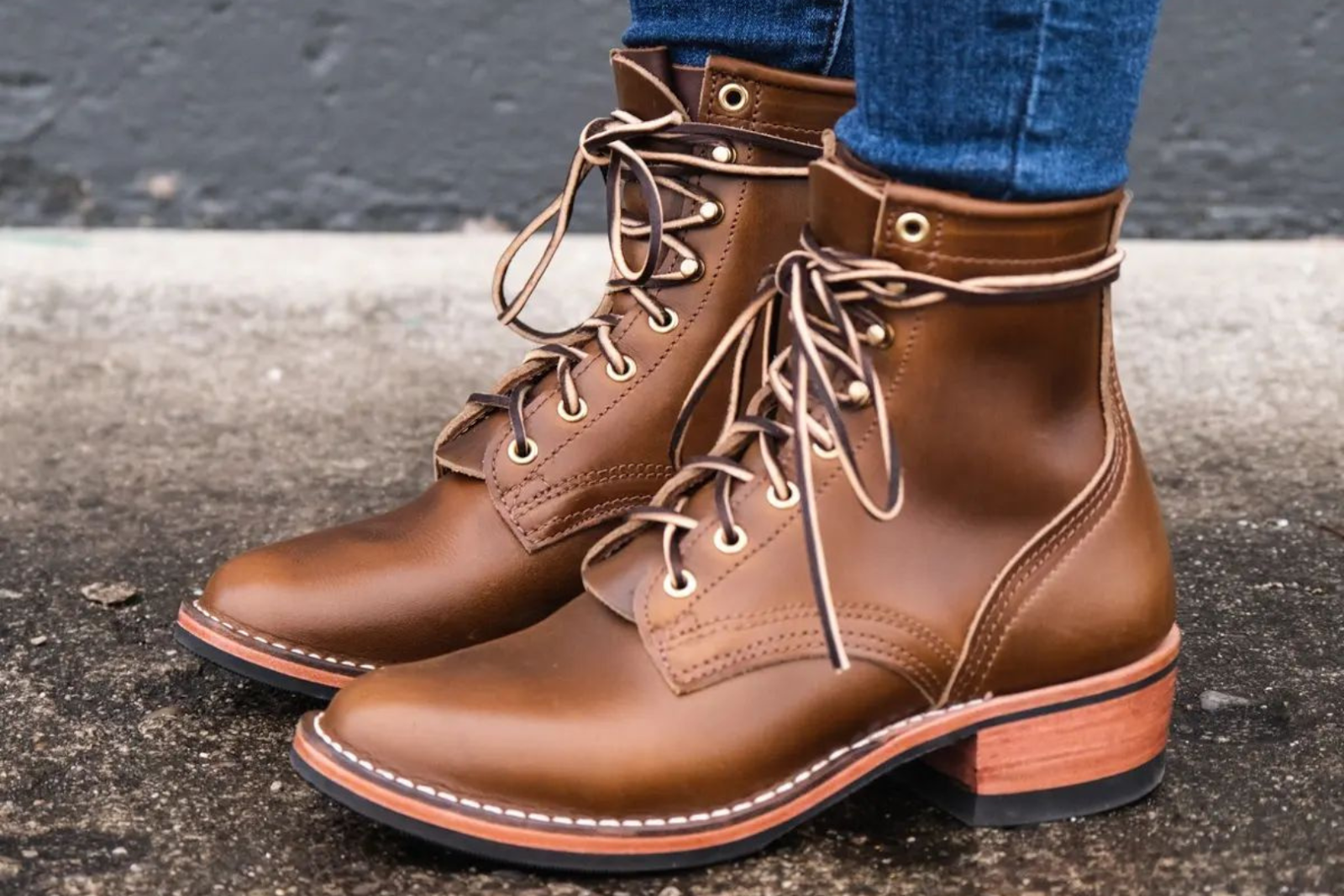

Evaluate Protection Needs
Evaluate the level of protection you need based on the hazards present in your workplace. Both alloy and steel toe boots offer solid protection, but steel toe boots may offer more reassurance in extreme conditions.
Factor In Climate Conditions
Consider the climate and temperature of your workplace. Steel boots can conduct cold and heat more than alloy, which might make them uncomfortable in extreme weather conditions.
Consider Durability And Longevity
Durability is key for ensuring your boots last and protect you as needed. Steel toe boots generally offer greater durability, especially in harsh conditions, but alloy toe boots can be a durable option for less demanding environments.
Balance Cost With Features
While cost is an important factor, it's vital to balance it with the features and benefits each type of boot offers. Higher upfront costs may be justified by longer durability, better protection, or greater comfort.
Final Thoughts
Deciding between alloy toe and steel toe boots hinges on matching individual needs with the specific demands of one’s work environment. Alloy toe boots shine for those seeking lightweight, comfortable protection, leveraging advanced materials to offer safety without the bulk, ideal for jobs requiring constant movement. Steel toe boots, however, remain the stalwart choice for environments where the risk of heavy impacts and hazards are prevalent, offering unparalleled durability and protection. This choice embodies the balance between embracing technological advancements in protective footwear and the practical need for safety, marking a thoughtful decision in ensuring workplace wellbeing and personal comfort.
For enthusiasts who venture beyond the workplace into the rugged outdoors, the right footwear becomes even more crucial. Our Hunting Boots are designed to meet the demands of both protection and comfort in the most challenging terrains. Bridging the gap between advanced materials and the practical needs of the outdoorsman, these boots ensure your safety and comfort on any hunting expedition.
Read also:
Frequently Asked Questions
Can alloy toe boots be used in all the same environments as steel toe boots?
Alloy toe boots are suitable for many of the same environments as steel toe boots, especially where ASTM F2413 standards are required. However, for extremely hazardous environments with the highest risk of impacts and compression, steel toe boots might offer more robust protection.
Are alloy toe boots more expensive than steel toe boots?
Generally, alloy toe boots can be more expensive than steel toe boots due to the cost of the lightweight materials used, such as aluminum or titanium. This cost can be offset by the benefits of increased comfort and reduced foot fatigue.
Do steel toe boots offer better protection against extreme temperatures?
Steel toe boots can conduct heat and cold more than alloy toe boots, making them potentially less comfortable in extreme temperatures. However, they provide superior protection in environments where thermal hazards are present.
How do I know if a boot meets ASTM F2413 standards?
Boots that meet ASTM F2413 standards will be clearly marked with the standard on the boot, usually found on the inside tag or embossed on the exterior. Always check the product specifications or consult with the manufacturer.
Are there any industries where alloy toe boots are preferred over steel toe boots?
Industries that value mobility and comfort, such as logistics or manufacturing with less risk of extreme hazards, may prefer alloy toe boots for their lightweight design.
How long do alloy toe and steel toe boots typically last?
The durability of the boots depends on the work environment and how well they are maintained. Steel toe boots may have a longer lifespan in more demanding conditions, whereas alloy toe boots can offer sufficient durability for many workplaces.
Can I wear alloy or steel toe boots for leisure activities?
While both types of boots are designed for work environments, they can be worn for leisure activities, especially if the activities involve potential foot hazards. However, there are more comfortable, non-protective options available for casual use.
Is there any weight difference noticeable when wearing alloy vs. steel toe boots?
Yes, alloy toe boots are significantly lighter than steel toe boots, which can reduce foot fatigue and make them more comfortable for long periods of standing or walking.
Do either alloy or steel toe boots require special care or maintenance?
Both types of boots require regular maintenance to extend their lifespan, including cleaning and drying properly after use. Alloy toe boots may need less care for corrosion resistance than steel toe boots.
Are there any new technologies being developed in protective footwear?
The protective footwear industry is continually evolving, with advancements in materials and design to enhance comfort, protection, and durability. Innovations include improved alloy compositions and more effective insulation against thermal risks.
